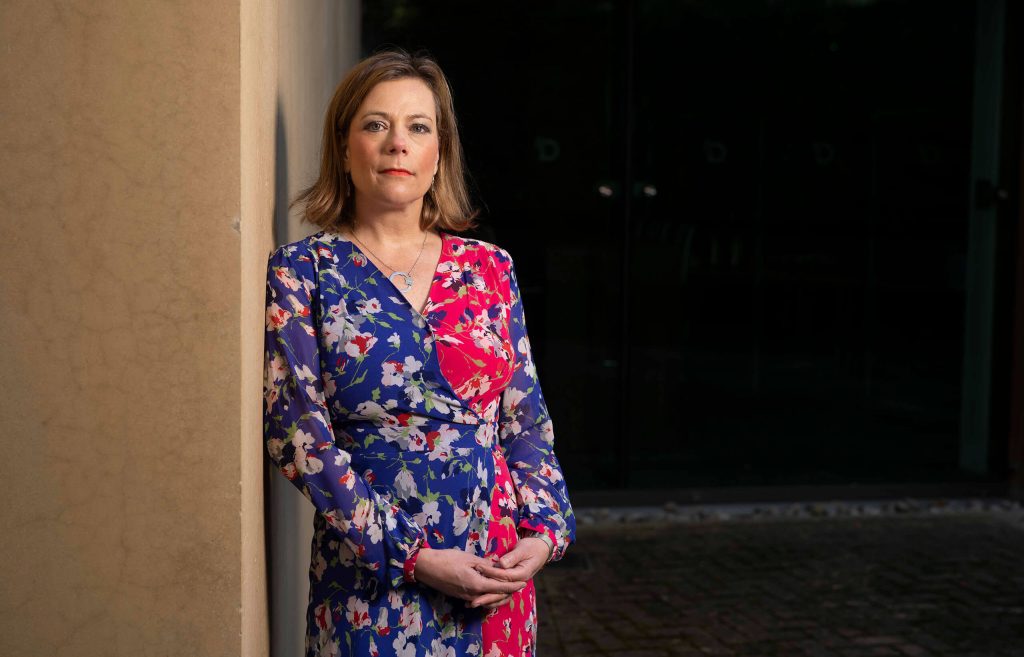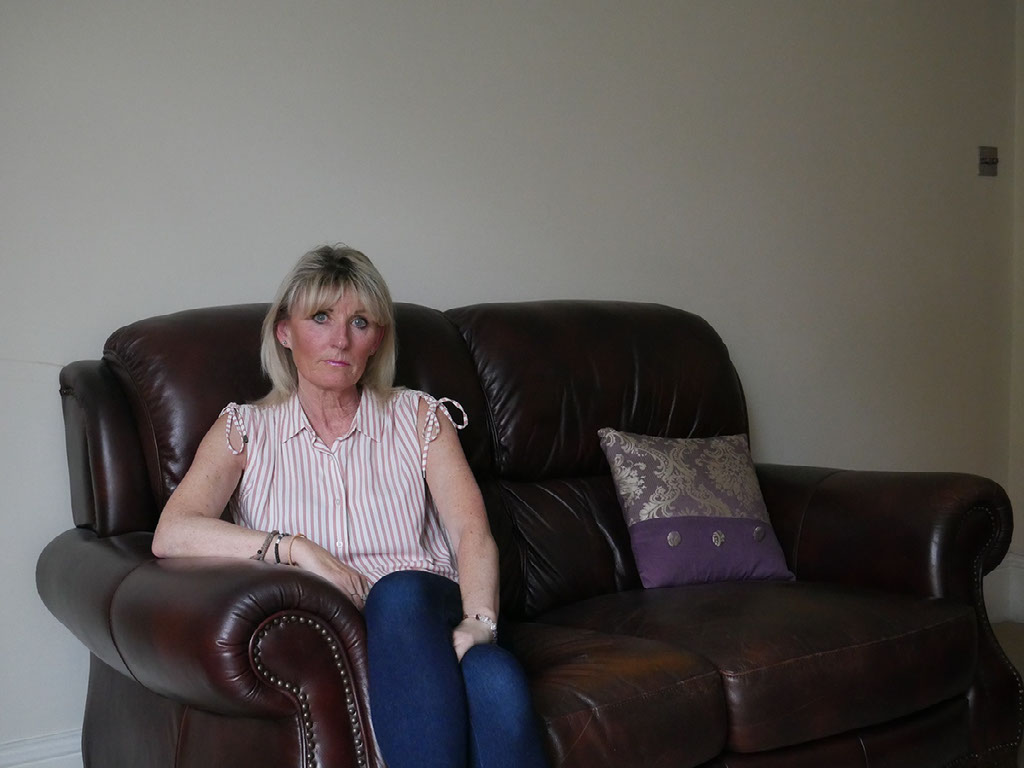North East health campaigners welcome major review aimed at making smoking obsolete
- Independent report by Javed Khan launches today with a host of bold recommendations
- NE cancer survivor Sue Mountain makes passionate plea at launch of national blueprint for action.
Doctors, former smokers and health campaigners in the North East have welcomed a major review outlining bold plans to “make smoking obsolete” and end the trail of disease and death in local communities.
The independent report was launched today by Javed Khan, with North East former smoker and cancer survivor Sue Mountain making a passionate plea for Ministers to do more to tackle smoking.
More than 113,000 people in the North East have been killed by tobacco since the year 2000, while 8 million people have died from smoking in the UK since 1971.
In the 1,053 days [1] that have passed since the Government pledged to make England smokefree, in the North East:
- Over 15,000 people have died from smoking related illness.
- 16,967 children have started smoking.
- Around £2.56bn has been spent on tobacco.
Campaigners are now calling on Government to publish its long-awaited Tobacco Control Plan by the end of the year and act on the findings of the Khan Review, an independent review, commissioned by the Secretary of State for Health, Sajid Javid.
Ailsa Rutter OBE, Director of Fresh and Balance, said:
“This is a landmark moment which will set the agenda for action over the next few years. Smoking is still our biggest killer – 2 out of 3 two long term smokers will die from tobacco.
“This is a lifesaving, cross party issue that unites politicians from all sides with strong support from people across the country to make smoking history for more families and more children. Most of us have a friend or loved one who has died from smoking, including my own dad who died aged just 61.

Ailsa Rutter OBE, Director of Fresh and Balance
“Most smokers start in their teenage years, trapping them in an addiction to spend tens of thousands of pounds on tobacco over a lifetime. Smoking attacks their body, their health, their mobility and independence. It costs local communities, the NHS and local authorities in health and social care.
“Tobacco companies profit from death and addiction and make more than £1bn profit in the UK – it is time they are held more accountable for the harm they cause. and accept that bold new measures and more investment in encouraging and supporting smokers to quit is vital if we are to level up.”
Former smoker Sue Mountain, from South Tyneside underwent laser treatment in 2012 after a biopsy revealed she had laryngeal cancer. The cancer returned in 2017 which required radiotherapy every day for four weeks.
Sue said:
“As someone who’s had smoking-related cancer three times I know the heartbreak that smoking can cause. I started when I was a kid, before I realised how addictive it was. I started smoking at primary school. Increasing the age of sale won’t stop everyone smoking but it would help stop a lot of people.
“The fact is that smoking has killed nearly 8million people in the UK in the last 50 years. Why do we tolerate this? Why aren’t we doing more to stop people dying?

Former smoker and cancer survivor Sue Mountain.
“Tobacco companies are making massive profits from an addiction that robs people of their lives and their health. I believe they need to pay for the damage they do – more support for smokers and awareness campaigns encouraging people to stop.
“I don’t want my grandchildren to go through what I went through. I think my view will be shared by many people who have smoked – it makes you even more concerned your loved ones don’t follow. I could have bought half a house with the money I spent on smoking instead of cancer.”
Dr Ruth Sharrock, Respiratory Consultant and Clinical Lead for Tobacco Dependency for the North East and North Cumbria said:
“Every day on our ward I see the widespread, devastating effects caused by smoking – especially in a region like the North East where nearly one in three people smoked at the start of the century.
“Whether it is patients struggling to walk with COPD and emphysema requiring oxygen or outpatients having to be told they have a lung cancer from smoking – the effects are utterly devastating to patients and their families. Decade after decade we treat these diseases, but we need more focus on prevention to support smokers to stop and prevent people becoming dependent on tobacco in the first place.
“No one wants their children to suffer from cancer or wake up gasping for breath. Sadly, that’s the reality for many smokers, we know their family are also more likely to smoke. That’s why we need the harm to stop now, to create a smokefree future for the next generation.”
Amanda Healy, Director of Public Health for County Durham and Chair of the Association of Directors of Public Health – North East forum, said:
“The North East has gone from the region with the worst smoking rates in England to seeing the biggest falls. Smoking has nearly halved since 2005 and that is due to the efforts of our local authorities and NHS to prioritise this in the North East.
“But after Covid we must now recognise smoking is our single biggest killer – the job is not done. We are calling on the Government to take bold new steps to reduce smoking further, stop children from starting and curb the influence of tobacco companies.”
Alice Wiseman, Director of Public Health for Gateshead, said:
“We have an ambition that one day there can be a smoke-free Gateshead, a place where our communities are not affected by the harm caused by tobacco.
“Smoking is not about people’s individual choices but the opposite. Local people and communities have been intentionally influenced by powerful corporations who have a vested interest in keeping smoking rates as high as possible. Every year nearly 500 people die in Gateshead as a result of smoking so tobacco companies need to replace them with new smokers among our young people.
“My own dad lost his short fight for life aged only 54 as a result of smoking. Sadly my story is far from unique in a life cut short, a family robbed, gaping holes in people’s lives, of missed birthdays, holidays, weddings and graduations and that source of support when days are hard. The time has come when enough means enough.”
Deborah Arnott, Chief Executive of ASH, said:
“Javed Khan’s top priority is immediate and substantial increased government funding for tobacco control. He’s absolutely right. England is way behind target on the Government’s smokefree 2030 ambition and while tougher regulations will help, without additional investment we will never get back on track. Every day the Government fails to act more than 200 people in England die from smoking and 280 children under 16 light their first cigarette, two thirds of whom will go on to become addicted smokers. The Secretary of State has said that it is a ‘moral outrage’ that England’s richest people live on average a decade longer than the poorest. The leading cause for this difference is smoking and it’s time for the government to match outrage with action.”
Calls for the publication of the new Tobacco Control Plan by the end of the year, are backed by MPs in the All Party Parliamentary Group (APPG) on Smoking and Health. Last year the APPG published its recommendations for a sufficiently funded Tobacco Control Plan, calling on Government to end the tobacco epidemic by 2030.
Mary Kelly Foy MP, Vice Chair of the APPG on Smoking and Health, said:
“I welcome the Khan Review’s vision for making smoking obsolete, backed up by recommendations for significantly enhanced funding for tobacco control. The people of the North East, where I am an MP, suffer disproportionately from disease, disability and death caused by smoking. The additional funding for regional and local tobacco control he recommends will be vital if the forthcoming Tobacco Control Plan is to succeed in securing a smokefree future for the next generation in our communities.”
Bob Blackman MP, Chairman of the All Party Parliamentary Group (APPG) on Smoking and Health said:
“As Chairman of the APPG on Smoking and Health, I am delighted to see the publication of Javed Khan’s bold review to make smoking obsolete. It shows a determination to achieve our ambition to be smokefree by 2030, and level up the health of the nation. Now it is time for the Government to deliver a sufficiently funded Tobacco Control Plan containing the actions it knows are needed. My parents lost their lives to this lethal addiction, so this is personal, I don’t want others suffering the way I did.”
Public support in the NE
- 75% of people in the region support a target to end smoking by 2030 which would mean fewer than 5% of people smoking.
- 82% support requiring businesses to have a valid licence to sell tobacco which can be removed if caught more than once selling to underage smokers.
- • 75% support requiring tobacco manufacturers to pay a levy to government for measures to help smokers quit and prevent young people from taking up smoking.
Smoking and the North East – the facts
- Around 15% of people in the North East smoke – over 320,000 people. The North East has seen the largest fall in smoking in England since 2005 when 29% of people smoke.
- 4 out of 10 households in the North East (42%) with a smoker are living in poverty – compared with 3 out of 10 nationally in England. It means 112,000 households in the North East where someone smokes is living in poverty, including 153,040 adults of working age, 28,005 pensioners and around 72,404 dependent children.
- Smoking costs the NE around £887 million a year in healthcare, social care costs and lost earnings:
- £124.9 million to the NHS from smoking-related healthcare –33,355 hospital admissions, 1.2m GP consultations, nearly 695,000 GP prescriptions, 413,000 practice nurse consultations and over 224,700 outpatient visits.
- £66.9 million in social care costs, with smokers needing social care at a younger age than non-smokers for everyday tasks such as dressing, walking and using the toilet due to smoking. This includes the cost of care to local authorities, care provided in the home and, for the first time, residential care costs.
- £684 million a year in lost earnings and employment prospects. Smokers are not only more likely to die in working age, but more likely to become ill, increasing the likelihood of being out of work and reducing their average wage.
- North East smokers spend around £634 million a year on tobacco, or approximately £2,000 per smoker. An estimated 24,000 jobs would be created in the region by freeing up money spent on tobacco into the regional and national economy.
